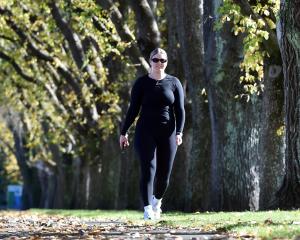Otago Business School researchers Dr Paula O’Kane, Associate Prof Sara Walton, Dr Diane Ruwhiu and Dr Dana Ott are conducting a five-question "pulse survey" for a Work Futures Otago study, to understand the experiences of people who have been able to work from home during this second national lockdown.
Dr O’Kane said more than 2000 people had responded so far, and their optional qualitative comments had revealed some intriguing experiences.
"One particular quote: ‘Kids! Want them?’ made us both laugh and groan in empathy," she said.
Although 63% of respondents reportedly found it easy or extremely easy to work from home effectively, 30% found it somewhat or extremely difficult, she said.
"Much of this relates to the ‘balance’ needed to work from home during the Delta lockdown, particularly for those with caring responsibilities."
Dr O’Kane said 71% of respondents were positive about their level of productivity during this lockdown.
However, the researchers could see productivity, in and of itself, was not the issue.
There was potential for people to be stressed, and ultimately experience burnout, while trying to balance work and life and the inherent uncertainty and worry caused by Delta.
Other respondents said anxiety, depression and the feeling of being isolated and not as productive, made them feel guilty.
And some respondents were working long hours to ensure work got done.
Problems with technology, such as slow Wi-Fi and inadequate equipment, exacerbated by the speedy lockdown leaving many with little chance to bring resources home, were also issues.
"Employers need to understand that some employees are only just coping," Dr O’Kane said.
"Our key message to employers echoes the Prime Minister’s kindness mantra — be flexible and understanding of individual needs."
Many participants discussed ways they or their organisations could support people, including enabling flexible hours (but ensuring people did not overwork); encouraging employees to switch off and leading by example; deferring non-essential projects and meetings; checking in regularly with staff; instigating opportunities for formal and informal communication; and priotising mental health.
"There is still a strong need to create and embed connectedness when working from home.
"Although many now understand and enact online meeting etiquette, and stronger communication, there was still evidence that people needed more support," Dr O’Kane said.












